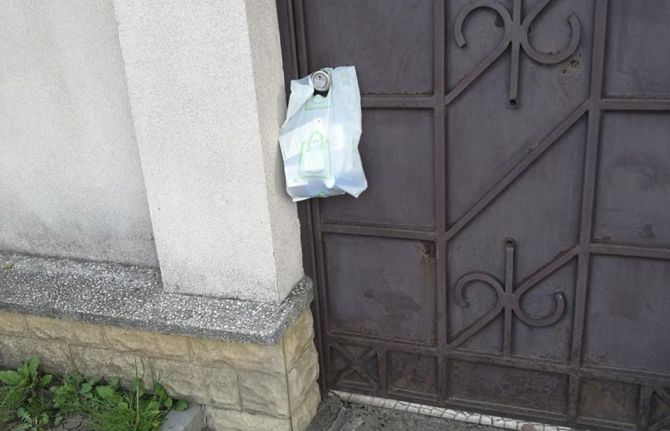

Feature Story
Delivery of PrEP at home in the Republic of Moldova
30 June 2020
30 June 2020 30 June 2020Mihai Ceban (not his real name) has been locked down at home since 17 March, when a state of emergency was declared in the Republic of Moldova in response to COVID-19. He is an information technology specialist, so working from home has not disrupted his daily routine too much. His was worried, however, by his inability to go out to get his supply of HIV pre-exposure prophylaxis (PrEP). He has been taking PrEP to prevent becoming infected with HIV since September 2019. Although he has a partner, he says taking PrEP makes him feel safer. “You can’t fully trust your partner,” he said.
During the state of emergency, restrictions imposed by the authorities and the fear of becoming infected with COVID-19 limited his social contacts to a maximum of two or three people. However, his partner continued to lead an active social life, which increased his risk of HIV infection.
"The fear of COVID-19 was enhanced by the fear of getting infected with HIV. That's why, when I saw I was running out of my pills, I started worrying. I wondered what I would do if no one was working? How do I protect myself? The response came from the GENDERDOC-M Information Center, which delivered my PrEP at home. And the fact that it was delivered to me during the pandemic means that my right to health was respected. It’s my right to have an active protected sex life during the pandemic. And the delivery of PrEP services at home has brought psychological relief and reduced the anxiety of becoming infected with HIV,” Mr Ceban said.
Mr Ceban is not the only beneficiary of the PrEP deliveries. Alexandru Goja, a health programme consultant at the GENDERDOC-M Information Center, said that during the pandemic more than 90 people received PrEP deliveries at home.
“At the beginning of the pandemic, everyone went into a kind of panic. Some people on PrEP discontinued taking it, but most wanted to continue. For them, we went out, into the parks, in front of their apartments blocks, where we tested them for HIV and delivered their medicine. During quarantine, people from key populations avoided going to medical institutions to pick up their medicines, trying to prevent the risk of becoming infected with COVID-19. The support provided by nongovernmental organizations helps them to exercise their right to health,” said Mr Goja.
Angela Nagît, an infectious disease specialist at the Hospital of Dermatology and Communicable Diseases, agrees with him. During the pandemic, she carried out consultations and prescribed PrEP remotely. It is very important that once enrolled on PrEP, the person should stick to it, she said.
“In the Republic of Moldova, HIV infection continues to be a major public health problem with a great medical, social and economic impact. Around half of the people who are estimated to be living with HIV don’t know their status. Unprotected sexual contact is one of the risk factors for HIV transmission. PrEP is a way to prevent infection, thus ensuring the right to health, especially for those from the key affected groups,” she said.



